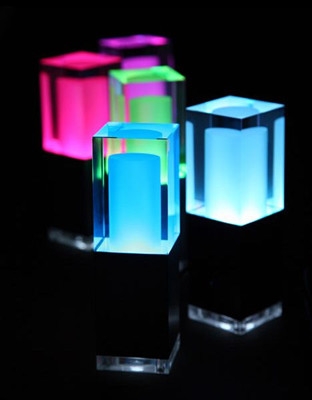Our homes glow at night.
每當夜幕降臨我們的房間總是燈火通明。
Light bulbs, TVs, and now computers, e-readers, tablets and smartphones expose people to an increasing amount of light after dark.
天黑之后電燈、電視、電腦、電子閱讀器,筆記本電腦和智能手機使人們暴露在越來越多的光線之中。
And the color of that light may influence mood and brain function.
然而光的顏色可能會對心情及大腦功能造成影響。
That’s according to a study in the Journal of Neuroscience.
這是根據神經科學期刊的一項研究所得出的結論。
 Researchers looked at the role of specialized photosensitive cells in the retina.
Researchers looked at the role of specialized photosensitive cells in the retina.
研究者們研究視網膜內特別的光敏細胞。
The cells, called ipRGCs, are responsible for regulating circadian rhythms.
這些叫做ipRGCs的細胞負責調節晝夜節律。
And recent evidence suggests these cells may also play a role in mood and cognition.
而最近的證據表明這些細胞可能也對情緒和認知起到作用。
To test how nocturnal lighting color affects mood, the researchers exposed hamsters to nighttime conditions of no light, red light, white light or blue light for four weeks each.
為了測試夜間光顏色如何影響心情,研究者們將倉鼠放到沒有光,紅色光,白色光或藍色光的夜間條件下進行各4周的研究。
Hamsters exposed to red light at night had the fewest brain changes associated with depression in humans, while blue and white light had the worst effects on mood.
在夜間暴露于紅色光下呈現最小大腦變化的倉鼠和人類的抑郁癥有關,而藍色和白色的光對于情緒有最壞的影響。
So late-night work email may not be the only thing ticking you off—the blue glow of your machine may also be getting you down.
所以深夜工作的電子郵件可能不是唯一斥責你業績不佳的托詞,你的機器閃爍的藍色光芒也會讓你感到失望。
The best bet: shut down and get some shuteye.
最好的解決辦法:干脆關機合一會兒眼。











